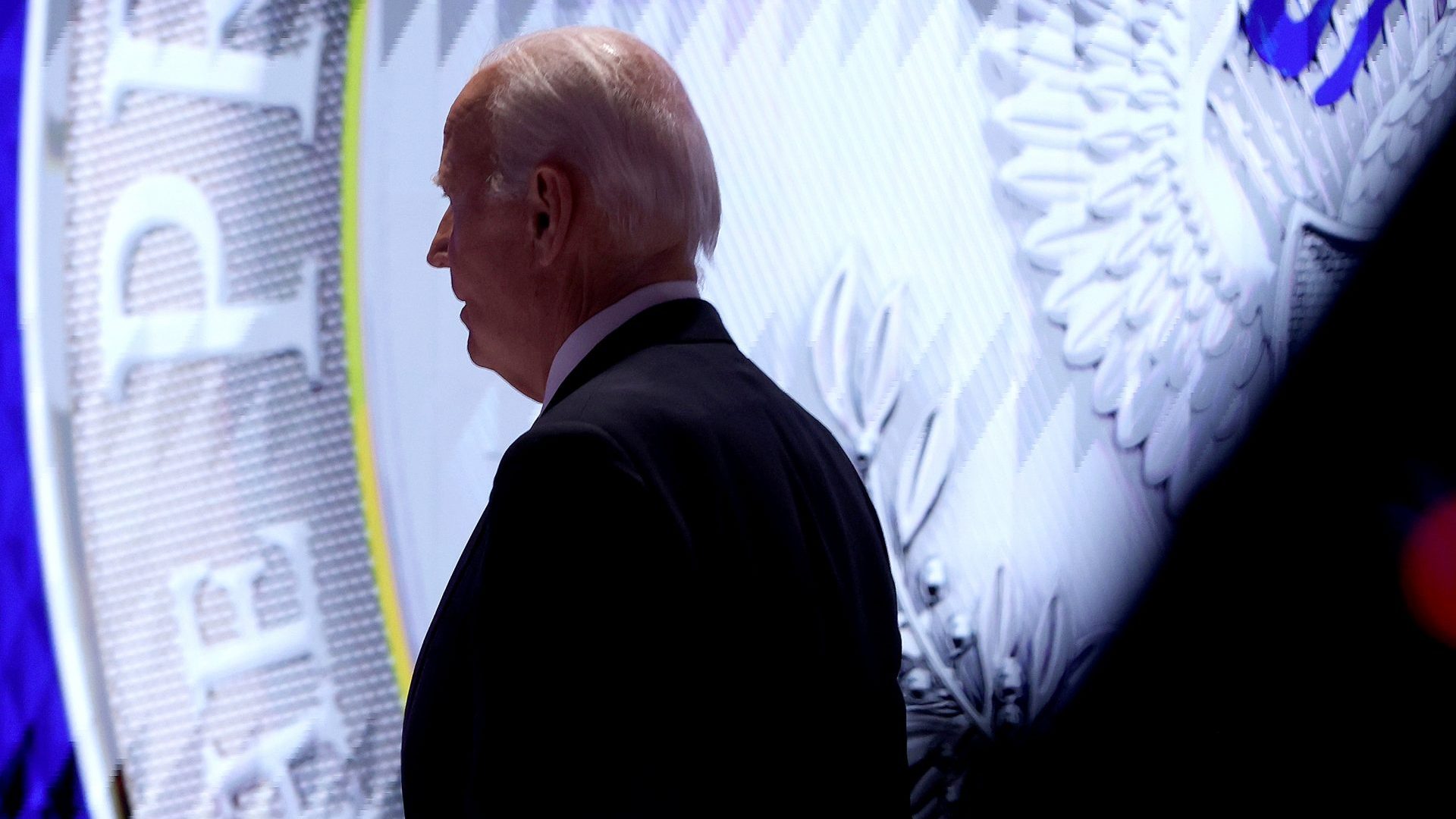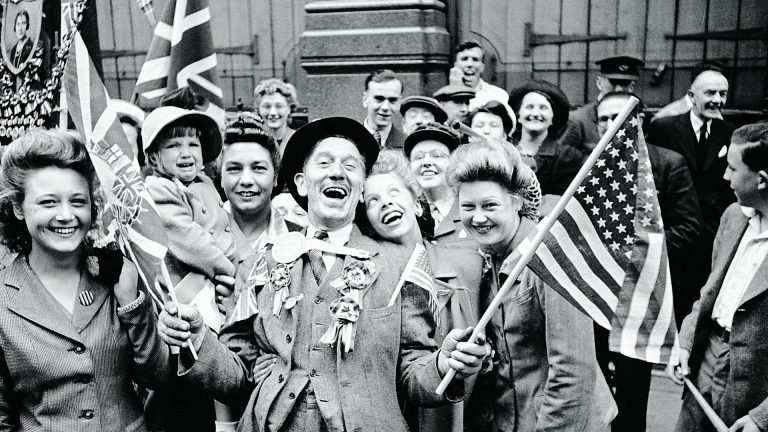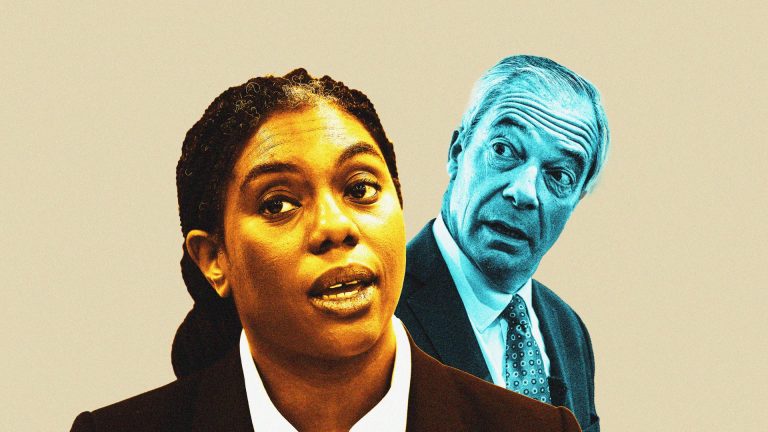In the end, the whole ghastly spectacle had nothing to do with democracy, or the US economy, or Roe v Wade, or Donald Trump’s incitement of an insurrection on January 6, 2021. It was all about physiology.
From the very first moments of CNN’s presidential debate in Atlanta, Georgia, it became all too clear that something was terribly wrong with Joe Biden. It was not just that he rushed his way, often incoherently, through his bullet-point answers – the product of almost a week’s focused preparation at Camp David – whispering his words, or slurring them, or losing his train of thought completely.
It was his overall bearing. He stared at the moderators, Jake Tapper and Dana Bash, and at his opponent, mouth agape, with the frightened countenance of an elderly man completely out of his depth, and certainly unfit for the world’s most powerful office.
It was a pitiful sight. Biden, for all the ups and downs of his long career, is a great American, a true champion of bipartisanship, and – lest we forget – has been a very good president.
Yes, the American exit from Kabul in August, 2021 was an ignominious shambles. But, by running the US economy hot, he has laid the groundwork for robust post-Covid recovery and passed a number of consequential legislative measures that (unless they are reversed) will shape the infrastructure and net zero strategies of the US for years to come.
You could often hear these achievements struggling for a hearing, trapped in Biden’s mumbled, tortured paragraphs. Rarely did they escape.
Instead, the president delivered passages of confusion like this: “We’ve been making sure we are able to make every single person eligible what I’ve been able to do with the Covid, excuse me, everything we have to do with… look… I finally beat Medicare…”
Trump, of course, did what he always does: he lied, and he lied, and he lied, and he lied. About January 6, about Biden being “paid by China”, about the Ukraine conflict (he ludicrously claimed that the president “encouraged” Russia), about US veterans, about what he called “Biden migrant crime”, about everything. As ever, he did not commit to respecting the outcome of the election if he loses.
And none of it mattered; not on the night at least. Tapper and Bash were not permitted by the rules to challenge or fact-check the former president, and Biden was clearly incapable of doing so. More striking even than Trump’s outrageous mendacity was the powerful impression that he was in command of his faculties, and his opponent wasn’t.
Most grotesquely, the president’s incapacity enabled Trump to mock his failure to make sense: “I really don’t know what he said at the end of that sentence. I don’t think he knows what he said, either.” Vile; but also true.
The Biden team had worked hard in their preparation to frame the event as an opportunity – the earliest-ever presidential debate in the electoral cycle – as a choice between two men; to drive home the point that the incumbent president is on the side of the American people, whereas Trump is only interested in himself. Which, again, is perfectly true. But, tragically, that is not the primary conclusion that millions of viewers will have drawn from this debate.
It is no accident that Trump likes to watch his interviews back with the sound turned off. He is an unlettered, anti-intellectual, hypermodern public figure. He grasps intuitively that most people do not watch their screens with rapt attention. They are distracted, multi-tasking, tuning in and out, watching clips rather than the whole performance. And what would they have seen? A big orange man, grinning and at ease with himself; and a translucent senior citizen on the verge of desperation, all at sea and lost to the world.
Only a sadist would fail to feel sympathy for Biden, and the humiliation that this constituted. He was first elected to the Senate in 1973, and he has been engaged in global statesmanship for most of his adult life.
To lose to a man who, less than a month ago, was convicted on 34 felony counts by a New York jury; who has been found liable for sexual assault: who was ordered in February to pay $354.9m for fraudulently overstating his net worth; who has been impeached twice; who faces three more significant criminal cases: to lose to such a man must be agony to a president who embodies some of the finest traditions of the republic he has long served.
But lose he did: according to CNN’s snap post-debate poll of voters, by a margin of 67 to 33%. And – if he remains the Democratic nominee – he will lose again in November, and Trump will return to the White House.
The panic within his own party was immediate, deep and justified. As soon as the debate was over, David Axelrod, Barack Obama’s former chief strategist, told a CNN panel: “The guy that was up there tonight, is not a guy who is going to inspire people”.
Van Jones, another alumnus of the Obama-Biden White House spoke of his love of Biden but added: “There’s a lot of people who are going to want to see him consider taking a different course now” (code for: stand aside). Even the vice-president herself, Kamala Harris, conceded in an interview with CNN’s Anderson Cooper that Biden had had a “slow start” in the debate and urged viewers to consider the last three and a half years rather than the last 90 minutes.
Even that argument won’t do. Biden was fading in the polls before the debate, behind in five of the key battleground states, and losing support with independent voters. In the hours before the two presidents squared up in Atlanta, Nate Silver, political pollster and founder of FiveThirtyEight, released the findings of 40,000 simulations which suggested that Trump already had a 65.7 percent chance of prevailing in the electoral college.
In March, after Biden’s unexpectedly spirited delivery of his State of the Union address, I wrote of his “solemn belief that the fragility of the republic is greater than his own. He believes he is indispensable”. But – after last night’s debate – it would be idle to claim that either belief is sustainable.
Will he step aside? Only he and his wife Jill will truly know what he is thinking today. But if, as has always seemed to be the case, empathy is Biden’s superpower he will acknowledge that much more is at stake than one politician’s pride; that he has a deep obligation to hundreds of millions of people.
If Trump regains the presidency, he has been quite explicit about the authoritarian direction in which he will take the nation; the millions of undocumented migrants whom he will seize in their communities and deport by force; his plans to politicise the middle ranks of the civil service; his intention to exact retribution from his political foes; his plans to tear up environmental regulations and “drill, baby, drill”. (Google “Project2025” if you think I exaggerate.)
And the outcome of the November election will affect the rest of the world too – perhaps profoundly. Trump would certainly pull the plug on US military aid to Ukraine, a huge win for Vladimir Putin. He would put Nato in mortal jeopardy.
He would end America’s commitment to global net-zero targets. He would raise trade tariffs, sending shock waves through the global economy. He would vandalise once more the multilateralism that Biden has tried to restore. We will all pay a price for the return to the White House of this raging, reckless narcissist.
In her new memoir of the Sixties, An Unfinished Love Story, the great American historian Doris Kearns Goodwin quotes the recollections of her late husband, Dick, who was a youthful aide to John F Kennedy, and helped him prepare for the first-ever televised presidential debate, against Richard Nixon, in September 1960: “A TV debate is not exactly a format for levity, complexity or reflection. Time is short, stakes are enormous. A single, serious mistake could prove fatal to months of campaigning. Style, of necessity, towers over substance”.
That is as true in 2024 as it was in 1960. Today, Trump is on course to become the first defeated president since Grover Cleveland in 1892 to win re-election.
The best and most honourable way in which Biden could cap his illustrious career on the world stage now is to end it forthwith, announce his withdrawal well before the Democratic convention in Chicago in August, and give his party at least a chance of winning in November with a different nominee.
Even that will be a stretch. But, with just over four months to go, it is the last best hope.











